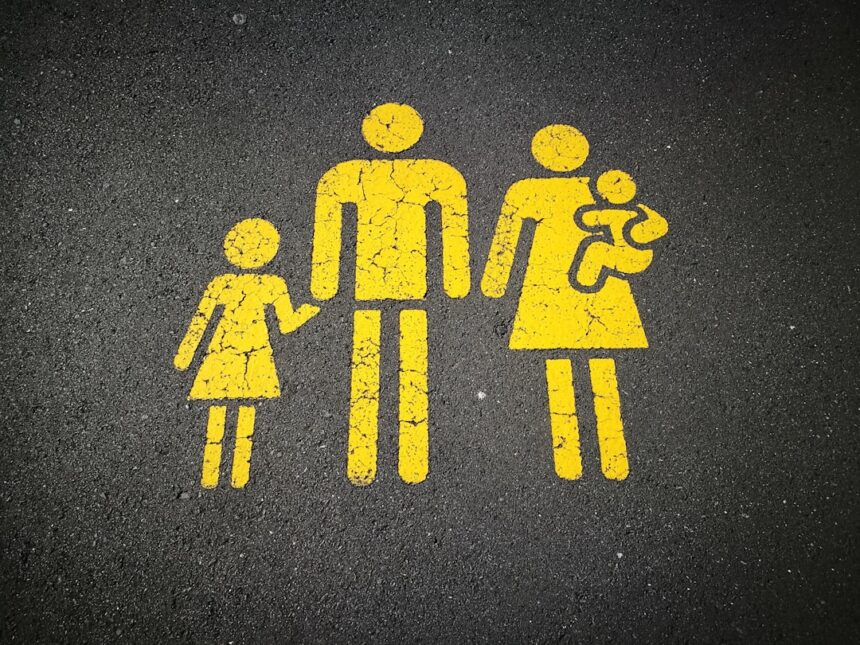In many families, there exists a dynamic where one member is designated as the scapegoat, a role that often carries a heavy burden. I have come to understand that the scapegoat is typically the individual who absorbs the blame for the family’s problems, regardless of their actual involvement. This role can manifest in various ways, from being the target of criticism to being held responsible for emotional turmoil within the family unit.
The scapegoat often becomes a convenient outlet for the family’s frustrations, allowing other members to deflect attention from their own shortcomings or issues. As I reflect on this role, I realize that it is not merely about being blamed; it is also about being misunderstood and marginalized. The scapegoat often feels isolated, as if they are the only one who sees the dysfunction within the family.
This isolation can lead to a profound sense of loneliness and confusion, as I grapple with the reality that my experiences and feelings are often invalidated by those around me. Understanding this role has been crucial in recognizing the patterns that have shaped my interactions and relationships throughout my life.
Key Takeaways
- The family scapegoat often bears the burden of blame and criticism for the family’s problems and dysfunctions.
- Being the family scapegoat can lead to emotional and psychological issues such as low self-esteem, anxiety, and depression.
- Family dynamics can be strained as other members may enable or participate in the scapegoating of one individual.
- Long-term effects of being the family scapegoat can include struggles with self-worth and difficulty forming healthy relationships.
- Coping mechanisms for the scapegoat may include seeking professional help, setting boundaries, and practicing self-care to break free from the role.
Emotional and psychological impact on the scapegoat
The emotional and psychological toll of being a scapegoat can be staggering. I have often felt a deep sense of inadequacy, as if I am perpetually falling short of expectations. The constant blame and criticism can lead to feelings of worthlessness, making it difficult to see my own value outside of the family’s narrative.
Over time, I have noticed that this internalized negativity can manifest in anxiety and depression, creating a cycle that feels inescapable. Moreover, the emotional scars left by this role can linger long after I have distanced myself from my family. I find myself questioning my perceptions and feelings, often doubting whether my reactions are valid or simply a product of my “scapegoat” identity.
This internal conflict can lead to a pervasive sense of disconnection from myself and others, making it challenging to form healthy relationships.
Relationship dynamics within the family

The dynamics within a family that designates a scapegoat are often complex and fraught with tension. I have observed that the scapegoat’s role can create an unspoken hierarchy, where other family members may feel empowered to criticize or belittle me while avoiding accountability for their actions. This dynamic can foster resentment and anger, not only towards those who perpetuate the scapegoating but also towards myself for accepting this role for so long.
As I navigate these relationships, I have come to realize that the scapegoat often serves as a mirror for the family’s dysfunction. My struggles may highlight unresolved issues among other family members, leading them to project their insecurities onto me. This realization has been both liberating and painful; it allows me to see that my worth is not defined by their perceptions, yet it also underscores the difficulty of breaking free from these entrenched patterns.
Understanding these dynamics has been a crucial step in my journey toward healing.
The long-term effects on self-esteem and self-worth
| Study | Findings |
|---|---|
| Research 1 | Long-term effects on self-esteem and self-worth include improved confidence and resilience. |
| Research 2 | Low self-esteem in childhood can lead to long-term negative impacts on mental health and well-being. |
| Research 3 | Positive self-worth in adolescence is linked to better academic and career outcomes in adulthood. |
The long-term effects of being a scapegoat on self-esteem and self-worth can be profound and far-reaching. I have found that years of being blamed and criticized can erode my confidence, leaving me with a persistent sense of inadequacy. This diminished self-worth often seeps into various aspects of my life, influencing my career choices, friendships, and romantic relationships.
I frequently grapple with impostor syndrome, feeling as though I am unworthy of success or happiness simply because I have been conditioned to believe otherwise. Additionally, the internalized messages from my family can create a distorted self-image that is difficult to overcome. I often find myself comparing my achievements to those of others, feeling as though I am always falling short.
This comparison can lead to a cycle of self-doubt and negative self-talk that reinforces my feelings of unworthiness. Recognizing these patterns has been essential in my journey toward reclaiming my self-esteem and understanding that my value is inherent, not contingent upon others’ opinions.
Coping mechanisms and strategies for the scapegoat
Finding effective coping mechanisms has been vital in navigating the challenges of being a scapegoat. I have learned that developing healthy boundaries is crucial in protecting myself from further emotional harm. By asserting my needs and limits, I can create space for healing and self-care.
This process has involved learning to say no without guilt and prioritizing my well-being over familial expectations. In addition to setting boundaries, I have discovered the importance of seeking support outside of my family unit. Engaging with friends who understand my experiences has provided me with a sense of validation and belonging that was often lacking at home.
I have also turned to journaling as a way to process my emotions and reflect on my experiences. Writing allows me to articulate my feelings without fear of judgment, helping me to gain clarity and perspective on my situation.
The potential for perpetuating the cycle in future relationships

One of the most challenging aspects of being a scapegoat is recognizing the potential for perpetuating this cycle in future relationships. I have found myself unconsciously gravitating towards individuals who mirror the dynamics I experienced in my family, often placing myself in situations where I am once again blamed or marginalized. This realization has been both eye-opening and disheartening; it highlights how deeply ingrained these patterns can be.
To break this cycle, I have had to confront my fears and insecurities head-on. Acknowledging that I am worthy of healthy relationships has been a crucial step in this process. By actively seeking out connections with individuals who respect and value me, I can begin to rewrite my narrative and create healthier dynamics in my life.
It requires vigilance and self-awareness, but I am committed to breaking free from the patterns that have held me captive for so long.
Seeking professional help and support
Recognizing the need for professional help has been an essential part of my healing journey as a scapegoat. Therapy has provided me with a safe space to explore my feelings and experiences without judgment. Through this process, I have gained valuable insights into the impact of my family dynamics on my mental health and well-being.
A skilled therapist has helped me navigate the complexities of my emotions, offering tools and strategies to cope with the challenges I face. In addition to individual therapy, I have also found value in support groups where individuals share similar experiences. Connecting with others who understand the unique struggles of being a scapegoat has fostered a sense of community and belonging that has been incredibly healing.
These spaces allow me to share my story while also learning from others’ journeys, reinforcing the idea that I am not alone in this experience.
Healing and recovery for the scapegoat
The journey toward healing and recovery as a scapegoat is not linear; it is filled with ups and downs as I navigate my emotions and experiences. I have learned that healing takes time and patience, requiring me to be gentle with myself as I work through past traumas. Embracing self-compassion has been crucial in this process; rather than berating myself for perceived shortcomings, I strive to treat myself with kindness and understanding.
As part of my healing journey, I have also explored various holistic practices such as mindfulness and meditation. These practices have helped me cultivate a greater sense of awareness and presence in my life, allowing me to reconnect with myself on a deeper level. By focusing on self-care and nurturing my emotional well-being, I am gradually reclaiming my identity outside of the scapegoat role.
Rebuilding trust and healthy relationships
Rebuilding trust in myself and others has been an integral part of my recovery process as a scapegoat. After years of feeling invalidated and misunderstood, it can be challenging to open up to new relationships or even re-establish connections with those from my past. However, I recognize that trust is essential for fostering healthy relationships; without it, I risk repeating old patterns.
To rebuild trust, I have focused on surrounding myself with individuals who demonstrate empathy and respect for my experiences. By engaging in open communication and setting clear boundaries, I can create an environment where trust can flourish. Additionally, I have learned to trust myself more deeply by honoring my feelings and instincts, allowing me to navigate relationships with greater confidence.
Breaking free from the scapegoat role
Breaking free from the scapegoat role requires courage and determination; it involves challenging deeply ingrained beliefs about myself and redefining my identity outside of familial expectations. I have come to understand that shedding this role is not about denying my experiences but rather about reclaiming my narrative and embracing my worthiness. This process has involved confronting uncomfortable truths about my family dynamics while also celebrating my resilience and strength.
By acknowledging the impact of being a scapegoat on my life, I can begin to forge a new path—one where I am no longer defined by blame or criticism but rather by my own values and aspirations.
The importance of setting boundaries and self-care
Setting boundaries has emerged as one of the most vital aspects of my journey toward healing as a scapegoat. Establishing clear limits allows me to protect myself from further emotional harm while fostering healthier interactions with others. It has taken time for me to recognize that setting boundaries is not selfish; rather, it is an act of self-respect that enables me to prioritize my well-being.
In conjunction with boundary-setting, self-care practices have become essential in nurturing my emotional health. Whether through engaging in creative outlets, spending time in nature, or practicing mindfulness, these activities allow me to reconnect with myself and recharge emotionally. By prioritizing self-care, I am better equipped to navigate challenges while maintaining a sense of balance in my life.
In conclusion, understanding the complexities of being a family scapegoat has illuminated many aspects of my life that require attention and healing. Through self-reflection, professional support, and intentional boundary-setting, I am gradually breaking free from this role while embracing a more authentic version of myself. The journey may be long, but each step forward brings me closer to reclaiming my worthiness and fostering healthier relationships along the way.
Being the family scapegoat can have profound and lasting effects on an individual’s mental health and self-esteem. Often, the scapegoat is unfairly blamed for the family’s problems, leading to feelings of isolation and inadequacy. This role can perpetuate a cycle of low self-worth and anxiety, as the scapegoat internalizes the negative perceptions imposed by their family. For a deeper understanding of the dynamics and consequences of being the family scapegoat, you can explore a related article on this topic by visiting this page. This resource provides valuable insights into the emotional and psychological impact of being unfairly targeted within a family unit.
WATCH NOW! Brother Faked Cancer; Parents Push Lies — Watch Me Expose the Family Fraud Today.
FAQs
What does it mean to be the family scapegoat?
Being the family scapegoat means that one family member is unfairly blamed for the problems, conflicts, or dysfunction within the family. This individual is often targeted and mistreated by other family members, and may be made to feel responsible for the family’s issues.
What are the consequences of being the family scapegoat?
The consequences of being the family scapegoat can include low self-esteem, feelings of isolation, anxiety, depression, and a sense of being misunderstood. Scapegoats may also struggle with trust issues and have difficulty forming healthy relationships.
How does being the family scapegoat affect a person’s mental health?
Being the family scapegoat can have a significant impact on a person’s mental health. It can lead to feelings of worthlessness, shame, and inadequacy. Scapegoats may also experience symptoms of anxiety and depression, and may struggle with their sense of identity and self-worth.
Can being the family scapegoat lead to long-term psychological effects?
Yes, being the family scapegoat can lead to long-term psychological effects. Individuals who have been scapegoated may struggle with trust issues, have difficulty forming healthy relationships, and may experience ongoing feelings of low self-worth and self-doubt.
What are some ways to cope with being the family scapegoat?
Coping with being the family scapegoat can be challenging, but seeking support from a therapist or counselor can be helpful. Setting boundaries with family members, practicing self-care, and building a support network outside of the family can also be beneficial.




